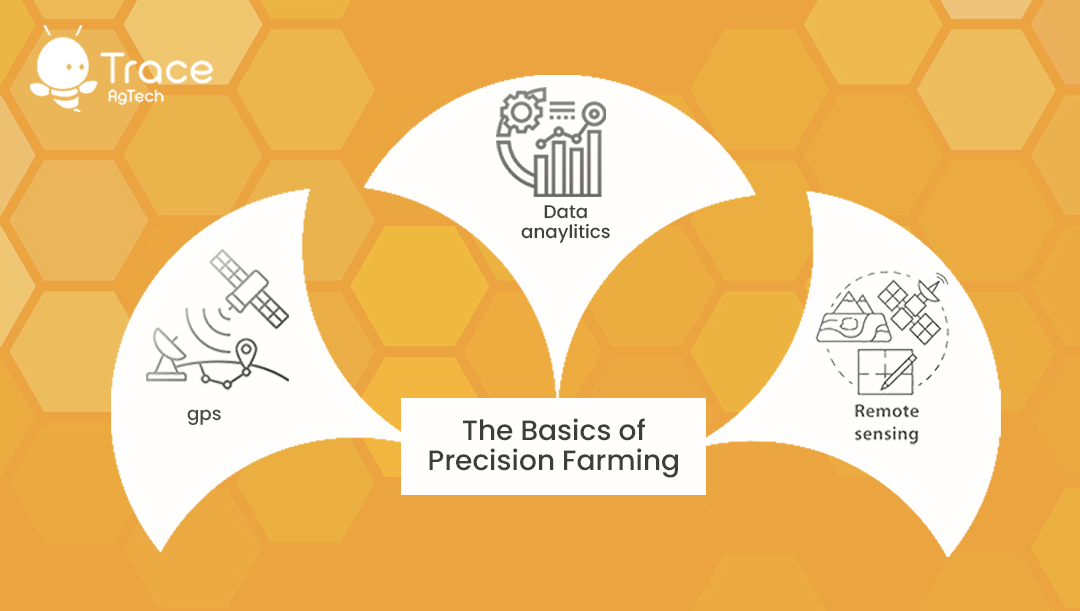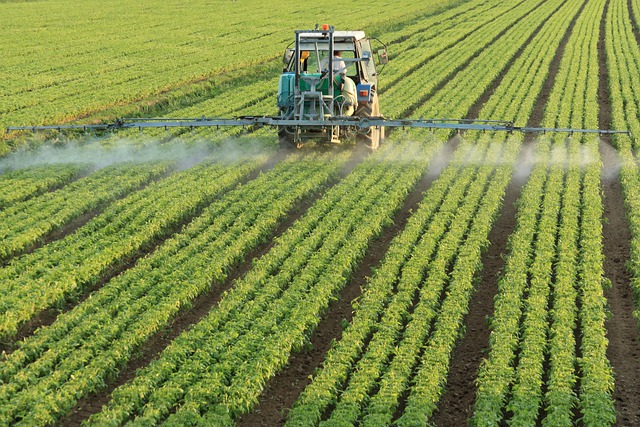Precision Farming: How Agritech is Maximizing Crop Yields and Efficiency
Introduction:
Precision farming, powered by agritech, has revolutionized the agricultural industry by leveraging advanced technologies to optimize crop production. This innovative approach combines data analytics, remote sensing, and automation to enhance farming practices, increase yields, and minimize resource wastage.
By providing farmers with real-time insights into crop health, soil conditions, and weather patterns, precision farming enables informed decision-making and targeted interventions. This blog explores the various technologies and strategies employed in such farming and highlights how agritech is transforming traditional farming methods to maximize crop yields and overall operational efficiency.
The Basics of Precision Farming:
Precision farming, also known as site-specific farming or precision agriculture, involves the use of advanced technologies to tailor agricultural practices to specific locations and needs. By employing sensors, satellite imagery, and automated systems, farmers can monitor and manage crops with precision, reducing costs and environmental impact while improving productivity. The key components of such farming include:
- Remote Sensing: Satellite imagery, drones, and ground-based sensors provide valuable data on crop health, soil moisture levels, and nutrient content. This data helps farmers make data-driven decisions and target interventions accurately.
- Global Positioning Systems (GPS): GPS technology enables farmers to precisely map and monitor fields, plan routes, and apply inputs such as fertilizers and pesticides in specific areas. This targeted approach optimizes resource usage, minimizes waste, and ensures uniform crop growth.
- Data Analytics: By integrating data from multiple sources, including weather forecasts, soil analysis, and historical records, farmers can gain insights into crop growth patterns and predict optimal planting, irrigation, and harvesting times. This data-driven approach maximizes yields and minimizes the risk of crop loss.

Technologies Revolutionizing Farming:
Agritech has introduced various cutting-edge technologies that are transforming precision farming and driving its success. These technologies include:
- Internet of Things (IoT): IoT devices, such as soil moisture sensors and weather stations, collect real-time data and transmit it to farmers’ smartphones or central control systems. This data enables farmers to monitor and adjust conditions remotely, optimizing irrigation, nutrient application, and pest control.
- Artificial Intelligence (AI) and Machine Learning (ML): AI and ML algorithms analyze large volumes of data to detect patterns, predict crop diseases, and optimize resource allocation. By harnessing the power of AI, farmers can make more informed decisions and implement proactive measures to prevent yield loss.
- Robotics and Automation: Autonomous vehicles, drones, and robotic systems are increasingly used for tasks such as planting, spraying, and harvesting. These technologies enhance precision and reduce labor costs, enabling farmers to focus on higher-value activities and increasing overall operational efficiency.
- Variable Rate Technology (VRT): VRT systems deliver inputs, such as fertilizers or seeds, at varying rates based on field conditions. By applying resources precisely where they are needed, VRT reduces waste and optimizes crop growth, resulting in higher yields and cost savings.
Benefits and Challenges of Precision Farming:
Such farming offers numerous benefits to farmers, the environment, and the global food supply chain. Some key advantages include:
- Increased Crop Yields: By leveraging precise interventions and optimized resource usage, precision farming can significantly increase crop yields, ensuring higher productivity and profitability for farmers.
- Resource Efficiency: Precision farming minimizes the use of fertilizers, water, and pesticides by delivering them only where necessary. This reduces environmental pollution, conserves resources, and promotes sustainable farming practices.
- Cost Savings: By optimizing inputs and reducing waste, precision farming helps farmers save costs associated with labor, fuel, and raw materials. It also minimizes the risk of crop loss, improving financial stability.
- Environmental Sustainability: Precision farming practices reduce the environmental footprint of agriculture by minimizing soil erosion, water pollution, and greenhouse gas emissions. This promotes a more sustainable and eco-friendly approach to farming.
Despite its numerous benefits, precision farming also faces some challenges. These include initial setup costs, technical complexity, and the need for reliable internet connectivity in rural areas. Additionally, there may be resistance to change from farmers accustomed to traditional farming methods. However, as technology advances and awareness increases, the adoption of precision farming is expected to grow.
Conclusion:
Such farming, empowered by agritech, is revolutionizing agriculture by maximizing crop yields and operational efficiency. By integrating advanced technologies such as remote sensing, data analytics, and automation, precision farming provides farmers with real-time insights and precise interventions. This results in increased productivity, reduced resource wastage, and environmental sustainability. While such farming faces challenges, its benefits far outweigh the initial barriers. As the world population continues to grow, the adoption of precision farming becomes increasingly crucial in meeting the global demand for food while ensuring sustainable farming practices for future generations.


Any comments?